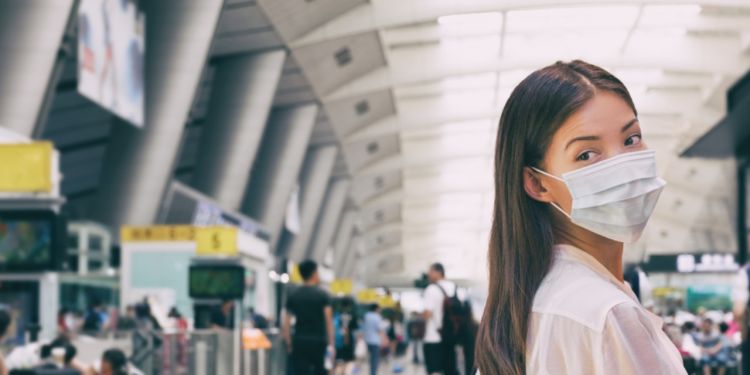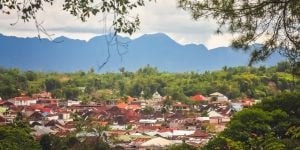
As the COVID-19 pandemic is evolving rapidly, Indonesia has chosen to keep its borders closed until things get better. If you're planning to move there after the crisis, here is what you need to know about what's changing regarding entry conditions and visas, work, property, the cost of living, lifestyle, etc.
What are the current regulations for entering Indonesia?
In an effort to contain the COVID-19 crisis, the Indonesian government has imposed strict border and restrictions. However, there are some exceptions for holders of valid multiple-entry temporary residence permits and permanent residence permits (KITAS and KITAP), holders of official and diplomatic visas and permits, children with dual nationality who are registered with the immigration service as an Indonesian citizen. These exceptions also apply to individuals occupying a key position and participating in a national strategic project with the authorisation of the Indonesian immigration department and those travelling for humanitarian purposes. Holders of expired permanent and temporary residence permits are also allowed to enter Indonesia through specific airports. Find more information on the immigration website. Besides, travellers must be in possession of a health certificate issued in their home countries. On arrival in Indonesia, they have to undergo a mandatory COVID-19 test and will be quarantined for 14 days in one of the government-designated establishments or a facility of their choice under the supervision of health authorities. Also, they must not have travelled in a high-risk country for 14 days prior to their arrival in Indonesia.
Have there been any visa changes recently?
As of July 13, 2020, holders of expired free BVK visa are required to leave the country within 30 days. Holders of on-arrival visas and expired sponsored visa can request an extension within 30 days. Holders of expired KITAS or KITAP visas who are currently abroad must either return to Indonesia within 60 days to request a renewal or apply for a new visa at the Indonesian Embassy in their home country. Note that visa extension fees have been waived until further notice. Anyone failing to regularise their visa is liable to a fine, detention, or deportation. Find out more on the Immigration website.
Is it easy to find work in Indonesia following the crisis?
Finding a job in Indonesia as an expat has never been an easy task, and in light of the crisis, the situation is likely to get even worse. There have been mass layoffs in many sectors, mainly tourism. Today, nearly 1,200 hotels across the country have closed down until further notice. The automotive industry is also deeply affected and compelled to reduce its activities by at least 30% during the first quarter of 2020. While in some sectors, remote work is being encouraged, others, such as communication, food, energy, finance, as well as logistics and retail, remain fairly stable despite the crisis. Keep in mind, however, that foreign professionals are only hired in Indonesia when they have exceptional skills that are not available locally. The unemployment rate is therefore expected to drop from 5.8% in 2019 to at least 9.2% by the end of 2020, according to official forecasts -- which means that 5 million people are going to lose their jobs.
How has the local healthcare system performed during the crisis?
Indonesia's health care system and its treatment capacity were already alarming before the pandemic. So obviously, the situation worsened with the COVID-19 crisis. According to information provided by the Ministry of Health, the country has a capacity of 321,544 beds only for a population of nearly 270 million inhabitants, not to mention understaffing in medical and non-medical units. Add to that the lack of personal protective equipment. Given the progression of the pandemic, 227 additional hospitals, including military and police hospitals, as well as state-owned hospitals, are supporting the 132 government-designated hospitals in the treatment of COVID-19 cases. Buildings like Jakarta's Athletic Village and the Riau Refugee Camp were converted into treatment centres. Medical students have also been deployed on a voluntary basis to meet growing demand. Currently, the Indonesian government is relying on technology to provide remote healthcare to the population. With telemedicine, a large proportion of the population can now benefit from medical consultations online, by phone or by text, as well as the prescription and delivery of medication. Expats in Indonesia believe that going to a hospital for treatment would only increase the risk of contracting COVID-19. Some are even using Gojek to get their medication delivered at their doorstep.
Has anything changed regarding universities and schools?
Schools in Indonesia are reopening in phases since July 13, 2020. Only schools in low-risk areas or "green zones" are allowed to reopen with a reduced number of students. For the rest, arrangements have been made for distance learning. However, local authorities are closely monitoring the situation and will take the necessary decisions in due course. As the crisis is evolving rapidly, the situation of an area can change quickly. In any case, the wearing of masks, social distancing, and regular hand sanitising remain mandatory. Students and teachers with symptoms similar to COVID-19, or having a family member who is ill, are advised to self-isolate for at least 14 days before attending school. Note that only senior and junior schools are authorised to operate for the time being. Elementary schools, nurseries and kindergartens, will not be reopening for now. Also, parents have no obligation of sending their children to school if they don't feel comfortable with it. While arrangements have been made to ensure the smooth running of distance learning, many expat parents have also opted for homeschooling. Some universities are also helping their students to take online courses by negotiating internet packages with service providers. Remember that only 56% of the Indonesian population of 270 million have a good internet connection. Indonesian universities are also considering new methods to improve distance learning and implement them in the long run.
How is the real estate market following the crisis?
Although Indonesian banks are currently offering low-interest bank loans, the real estate market has kept its downward trend since the start of the COVID-19 crisis. Mass layoffs and wage, as well as border closures probably account for this in a significant way. Also, Jakarta, Surabaya and Java are among the high-risk areas. A study by the Bank of Indonesia indicated a 43.9% decline in the sale of large, medium and small houses during the first half of 2020, which resulted in a 1.68% price drop. According to official forecasts, the Indonesian real estate market is not likely to stabilise before the end of this year, even when all travel restrictions are lifted. Besides, according to expats in Indonesia, some owners are desperately trying to sell their property at lower prices. Rent prices are also falling due to the low demand.
Has the cost of living in Indonesia changed because of the crisis?
Expats in Indonesia agree that the cost of living has remained basically unchanged since the start of the crisis. Obviously, it all depends on one's lifestyle, but people tend to go out less, which also means spending less. At first, only the prices of masks and hand sanitisers had increased due to shortage. Aside from that, since borders restrictions aren't going to be lifted anytime soon, hotels and restaurants are offering discounts to Indonesians and residents in an attempt to keep their business going.
How about lifestyle? Have there been major changes in habits following the sanitary crisis?
The COVID-19 crisis has brought about a lot of changes in Indonesia, especially when it comes to lifestyle. Temperature checks, regular hand sanitising and the wearing of masks are the new norm, and the population has got used to it. Some innovative stores have even installed a machine that you have to wave at to get a parking ticket. Others have implemented a foot-operated control system for elevators. Besides, some roads are blocked in big cities, so you have to find alternative routes, which may take longer. Shopping malls have reopened although some shops remain closed. While restaurants are required to only provide take-away meals, people have started gathering in cafes and restaurants in the evening without even wearing a mask.
We do our best to provide accurate and up to date information. However, if you have noticed any inaccuracies in this article, please let us know in the comments section below.







